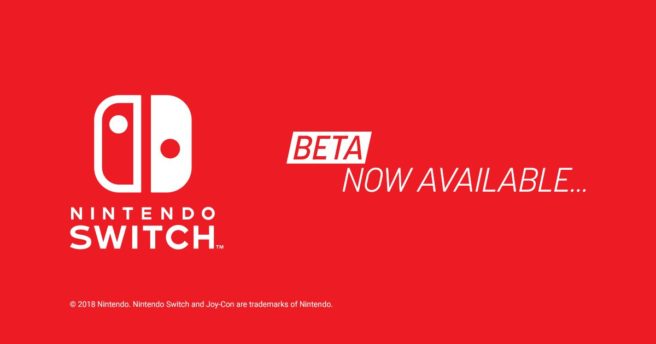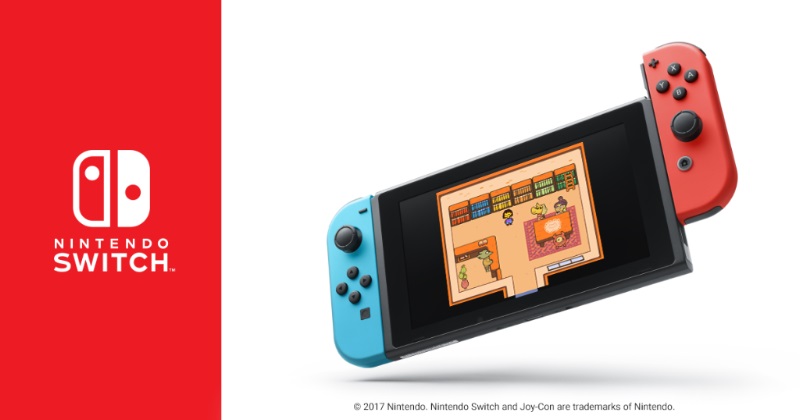[Interview] YoYo Games on the ease of porting GameMaker Studio 2 projects to Switch, more titles to come soon
Earlier this year, GameMaker Studio 2 was announced for Switch. The news was significant as it paves the way for even more developers to bring their titles to the system.
Following the recent news about GameMaker Studio 2 entering open beta on Switch, we caught up with YoYo Games general manager James Cox to learn more about the origins of supporting Nintendo’s console, how easy it is to port games, what lies ahead for the future, and more. You can read our full interview below.
For those who are unfamiliar with GameMaker Studio 2, can you explain the tech and how it allows developers to create games?
GameMaker Studio 2 is a game engine that enables people to make 2D games. It’s often used as a tool for people starting out and is used to teach game design as part of the STEM curriculum in middle-school and upwards. While GameMaker is an educational product, it also has a really high skill ceiling and is the basis for many hugely successful professional games including Hyper Light Drifter, Undertale, Minit, Nidhogg 2 and Crashlands.
When did discussions with Nintendo start regarding Switch support?
We announced our work with Nintendo prior to GDC in March this year. There was a lot of behind the scenes work with a small number of trusted developers and Nintendo earlier in 2017 to get us to that point.
How easy is it to actually bring games made in the engine to Nintendo’s console?
GameMaker Studio 2 enables developers to export their games from GameMaker into many platforms including desktop, web, mobile and console with one code base. When we launched the Nintendo Switch open beta on August 9th, we heard of developers getting their games running on a Nintendo Switch device within a couple of hours of being approved for access.
What was the reception like from developers currently using or thinking of using GameMaker Studio 2 when they learned that you were adding Switch support?
The reception was incredible. We had requests from our community every single day before we announced the Nintendo Switch export. After we announced the partnership, over 1,400 developers signed-up to receive information and many were desperate to get involved in early access versions. We’re extremely happy with how it’s turned out.
How difficult was the process of making the engine Switch compatible?
There’s no denying that it was a significant piece of work for us. That’s to be expected though, and all our console exports are challenging to set up because we need to assimilate and understand the target console’s set-up and the proprietary approaches and technology they’ve employed. The important point was to ensure our engine has optimal performance on the Switch and takes advantage of its hardware, and our engine now does this very well.
GameMaker Studio 2 support for Switch was first announced earlier this year in March, and the commercial release is happening in September. What’s been taking place over the past few months in terms of getting everything ready?
When we announced, we had five developers’ games that we were already working with. Our focus was getting those games through the technical certification for Nintendo. While we were working on those games passing it, we also invited another 15 developers to join the Closed Beta version of the export. In early August, three of our closed alpha games, Minit, Undertale and Hyper Light Drifter all passed the Nintendo technical certification. This proved to us that our Switch export was ready and then we opened-up the Beta.
A few developers were able to receive early access to GameMaker Studio 2 support on Switch. What was the selection process for that like?
To begin with, before the March announcement, we worked with developers that we knew well, and who had worked with us on other projects before. When we went to closed Beta, there were no hard and fast rules on who would qualify, but in general, it was a combination of having a really interesting game, needing early access because of a release schedule and them having convinced Nintendo of the game’s suitability for the Nintendo Switch platform.
More and more titles from independent developers are being announced and released on Switch each week. What do you make of the indie scene on Switch? Do you believe the system will continue to be a vibrant platform for smaller developers in the long term?
Yes, the Nintendo Switch console is all set to become a vibrant part of the indie developer scene. For many of the indies in our community, it’s an aspiration for them, something to aim for, almost a gold standard of having made it. We often hear developers talking about how they can’t believe they are going to be able to make the dream of appearing on the Nintendo Switch come true. While we’ll see many more indie games making it to the Nintendo Switch platform, these will still be the cream of the crop, as Nintendo continues to ensure quality control. The GameMaker export to Nintendo Switch has made it an achievable dream for indies to get their games on the Nintendo Switch, but for each one that does, it will remain a major achievement for them.
With Minit out now and Undertale already announced to be coming out shortly, can we expect more titles made in GameMaker Studio 2 to be announced for Switch in the near future?
Yes, Hyper Light Drifter’s release window has also been announced. Following-on from the Nintendo announcement at GDC, that leaves Crashlands and Nidhogg 2 to announce their release dates. I would expect there to be a short gap before we see those developers who are using the Closed Beta and then the Open Beta coming through, particularly in the lead-up to the winter holidays.
Is there anything else you’d like to share about GameMaker Studio 2 support for Switch?
We want to say that we’re extremely happy to be offer our users the chance to be on a Nintendo platform. The Nintendo Switch is a perfect platform for 2D gaming and we feel that GameMaker Studio 2 is the perfect platform for 2D game creation, so it is a great fit for us, for Nintendo, for developers and most importantly of all, for game players.
Nintendo Everything would like to thank James Cox for taking the time to answer our questions.


